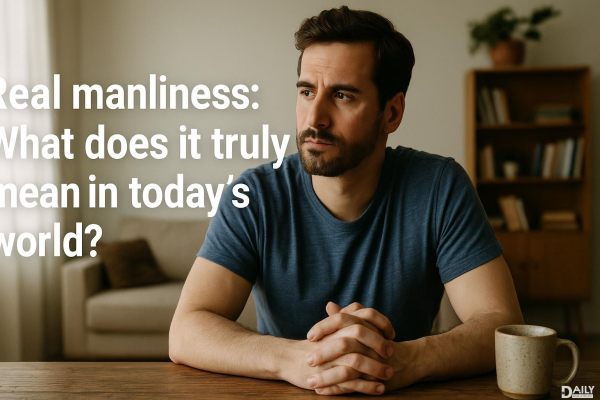Real manliness isn’t about flexing muscles or dominating conversations—it’s about integrity, empathy, and the courage to be vulnerable. In today’s world, where outdated stereotypes are being challenged left and right, true masculinity is less about chest-thumping and more about emotional intelligence, accountability, and respect. The old-school "alpha male" trope is fading fast, making room for a more nuanced, healthier version of what it means to be a man.

Gone are the days when brute force defined manhood. Real strength today is about resilience—mental, emotional, and even spiritual. Think about it: anyone can lift weights, but how many guys can handle rejection, failure, or criticism without crumbling? Emotional endurance is the new bench press. Men who can sit with discomfort, admit when they’re wrong, and ask for help are the ones setting the standard. And let’s be real—suppressing emotions doesn’t make you tough; it just makes you a ticking time bomb. The strongest men are the ones who’ve learned to process their feelings without letting them dictate their actions.
If there’s one thing modern masculinity needs, it’s the normalization of vulnerability. Society has long pushed the idea that men should be stoic, unshakable fortresses—but that’s a fast track to isolation and burnout. Opening up about fears, insecurities, or struggles doesn’t make you weak; it makes you human. In fact, studies show that men who embrace vulnerability have stronger relationships, better mental health, and even greater career success. The guys who pretend they’ve got it all figured out? They’re usually the ones drowning in silent stress. Real manliness means having the guts to say, "I don’t know," "I need help," or "This hurts."
The toxic idea that men must always be in control—whether in relationships, workplaces, or social circles—is finally being called out. True masculinity isn’t about asserting dominance; it’s about earning respect through fairness, kindness, and collaboration. The most admired men today are those who uplift others instead of competing with them. That means listening more than talking, sharing credit instead of hogging the spotlight, and standing up against injustice even when it’s uncomfortable. A real man doesn’t need to belittle others to feel powerful—his confidence comes from knowing his worth without diminishing anyone else’s.
Nothing separates the boys from the men quite like accountability. Making mistakes is human; owning them is maturity. Too many guys still hide behind excuses, blame-shifting, or outright denial when they mess up. But real manliness means looking in the mirror and saying, "Yeah, I screwed up—here’s how I’ll fix it." Whether it’s in relationships, parenting, or work, taking responsibility builds trust and respect. And let’s not forget self-accountability—holding yourself to high standards without needing external pressure. A man who can admit his flaws is a man who’s committed to growth.
For decades, masculinity was tied to material success—fat paychecks, fancy cars, corner offices. But more men are realizing that fulfillment doesn’t come from external validation. Real success is about balance: being present for your family, pursuing passions outside of work, and contributing to something bigger than yourself. The modern man isn’t afraid to prioritize mental health over overtime hours or choose a "smaller" life that brings joy over a high-stress grind. And hey, if that means trading a suit for sweatpants to coach your kid’s soccer team? That’s winning.
At the end of the day, real manliness isn’t a checklist—it’s a mindset. It’s about showing up authentically, treating others with dignity, and having the humility to keep evolving. The world doesn’t need more "tough guys"; it needs more good men. And that’s something worth striving for.
























